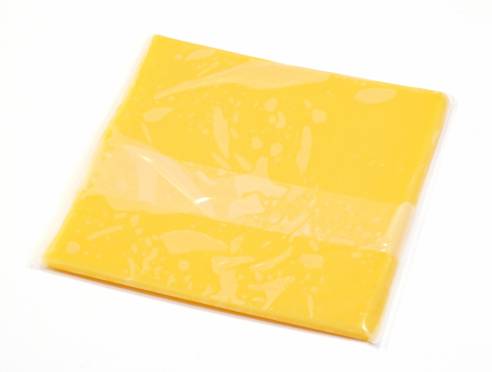Connect with a verified veterinarian in minutes. Licensed vets are available 24/7 to answer your questions. No need to worry about your furry family member.
Don’t you love cream cheese? It’s a versatile food that tastes great on almost anything! As you’re using the cream cheese, what happens with the wrapper? Do you leave the cream cheese wrapper on the counter or throw it away? Either way, it’s possible your dog could find the wrapper and try to eat it! But what happens if a dog eats a cream cheese wrapper?
Has your dog eaten a cream cheese wrapper? Are you worried the cream cheese wrapper will make him sick? If so, you’ve come to the right place. We understand it can be scary when your dog eats something like this.
We’ve put together information about cream cheese wrappers and whether they can make a dog sick. Let’s get started!
What is a Cream Cheese Wrapper?
Some types of cream cheese come wrapped in aluminum foil (also called tinfoil). However, there are other brands that come in plastic containers. So, why would cream cheese be wrapped in foil?
Some cream cheese brands often use aluminum foil. The foil makes a strong light and oxygen barrier, which limits oxidation. The foil keeps the cheese fresh and tasting great! In addition, the foil helps the bricks of cream cheese maintain their shape.
Aluminum foil is made from aluminum that’s been turned into thin metal sheets. Aluminum is a natural mineral found in the ground. It’s pliable and doesn’t change the taste of food wrapped in it, making it popular to wrap cream cheese bricks and other foods.
While cream cheese wrappers are safe when used correctly, what happens if a dog eats a cream cheese wrapper?
Cream Cheese Wrappers & Dogs
Cream cheese wrappers can make a dog sick; however, it depends on the size and weight of the dog and how many cream cheese wrappers the dog has eaten.
It is possible for a dog to eat a cream cheese wrapper and develop an intestinal blockage. The problem is the foil can crumple up and block any part of the GI tract.
Another problem is how much cream cheese was on the wrapper. If there was only a little bit of cheese, the dog should be OK. However, if there was a lot of cheese on the wrapper, the dog could develop pancreatitis. This can be a life-threatening condition if not treated.

Review symptoms, medications & behavior to keep your pets healthy with a Vet Online in just minutes.
Ask a Vet Live NowSymptoms of Cream Cheese Wrapper Ingestion in Dogs
You may notice these symptoms if your dog has eaten a cream cheese wrapper:
- Vomiting
- Diarrhea
- Constipation
- Lethargy
- Lack of appetite
- Abdominal pain & swelling
If you notice any of these symptoms in your dog, call the vet immediately. This could be an emergency.
Be sure to tell the vet your fur baby has eaten a cream cheese wrapper and how much cream cheese was on the wrapper. Let the vet know what time this happened.
In some cases, a dog may require emergency surgery to remove the cream cheese wrapper safely. However, in other cases, the wrapper may pass naturally. The vet will let you know if your canine companion requires surgery or whether it’s possible to monitor him to see if the foil passes out naturally.
The good news is that most dogs who receive prompt treatment will make a full recovery! Be sure always to toss your cream cheese wrappers into a dog-proof wastebasket. Never leave the wrappers where your dog can access them.
Connect with a verified veterinarian in minutes. Licensed vets are available 24/7 to answer your questions. No need to worry about your furry family member.

Tom
Tom has always loved to write since he was little - he wanted to be either a writer or a veterinary doctor, but he ended up being a professional writer while most of his works are based on animals. He was born in San Francisco but later moved to Texas to continue his job as a writer. He graduated from the University of San Francisco where he studied biotechnology. He is happily married and a soon to be father!
Review symptoms, medications & behavior to keep your pets healthy with a Vet Online in just minutes.
Ask a Vet Live Now





